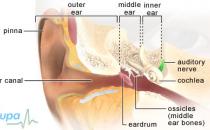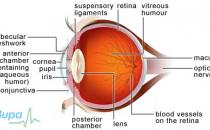Alzheimer’s symptoms detected on time?

Changes in the brain may begin decades before symptoms start of a rare type of Alzheimer’s disease, according to a study published in The New England Journal of Medicine.
Can a rare type of Alzheimer’s be detected decades before symptoms appear?
Dr Graham Stokes, Director of Dementia Care, Bupa Care Services, commented: “Alzheimer’s disease is a degenerative condition that causes dementia, which is a gradual loss of memory, language, judgement and the ability to function. This research looked at people who were at risk of developing a rare, inherited type of Alzheimer’s disease and found that signs of this unusual form may be able to be detected long before people start to get symptoms of clinical severity.
"The researchers found that the amount of a main biomarker for Alzheimer’s, found in spinal fluid, appeared to decline 25 years before symptoms would be expected. Ten years later, brain plaques were found to be detected on a brain scan and a protein called tau appeared in spinal fluid. Finally, brain metabolism appears to slow down and slight memory problems occurred 10 years before symptoms were expected to appear.
“Although only a very small number of people are affected by this type of Alzheimer’s, it’s encouraging that we are generally learning more and more about a very complex disease. The ability to detect sporadic Alzheimer’s disease, which is the most common form of the condition, before symptoms start to show would be a huge step in the right direction, but we’re a long way off from there and much more research is needed before we begin to fully understand how we can detect this disease as early as possible.
“Alzheimer’s disease affects everyone differently, but if you’re worried that you, a friend or family member has Alzheimer’s, the first symptom that usually appears is forgetfulness, for example, forgetting the name of a friend or forgetting the route to a familiar destination. You may also have difficulty finding the right word when you speak or write. It’s important to speak to your doctor if you think you have Alzheimer’s, so you can get a diagnosis and receive treatment that, for a time, can help control your symptoms.”
This study tested 128 people that were identified to be at risk of developing an inherited type of Alzheimer’s called autosomal dominant Alzheimer’s. They had blood and spinal fluid tests and brain scans, and completed mental ability tests at the start of the study as well as in subsequent years. The researchers looked at the age of each person in the study and compared this to their parent’s age when they first started to notice symptoms to estimate the amount of years it would take for symptoms to appear. The results were compared with family members that didn’t show any risk for developing Alzheimer’s.
Produced in collaboration with Bupa’s Health Information team, July 2012
Key facts
- 35.6 million people live with dementia worldwide. This number is expected to double by 2030 (65.7 million) and more than triple by 2050 (115.4 million).
- 750,000 people live with dementia in the UK, of these, about 460,000 have Alzheimer’s disease.
- There are certain factors that make it more likely you will get Alzheimer’s disease, including ageing, genetics, a previous severe head injury, lifestyle factors, such as smoking or obesity, diabetes, raised blood pressure and raised cholesterol levels.
- There’s currently no cure for Alzheimer’s disease, but treatment may slow down the development of the disease for a period of time.
Related topics
- Dementia
- Down’s syndrome
- High blood pressure
- High blood cholesterol
Related hubs
- Ageing
- Healthy mind
- Diet and nutrition
















